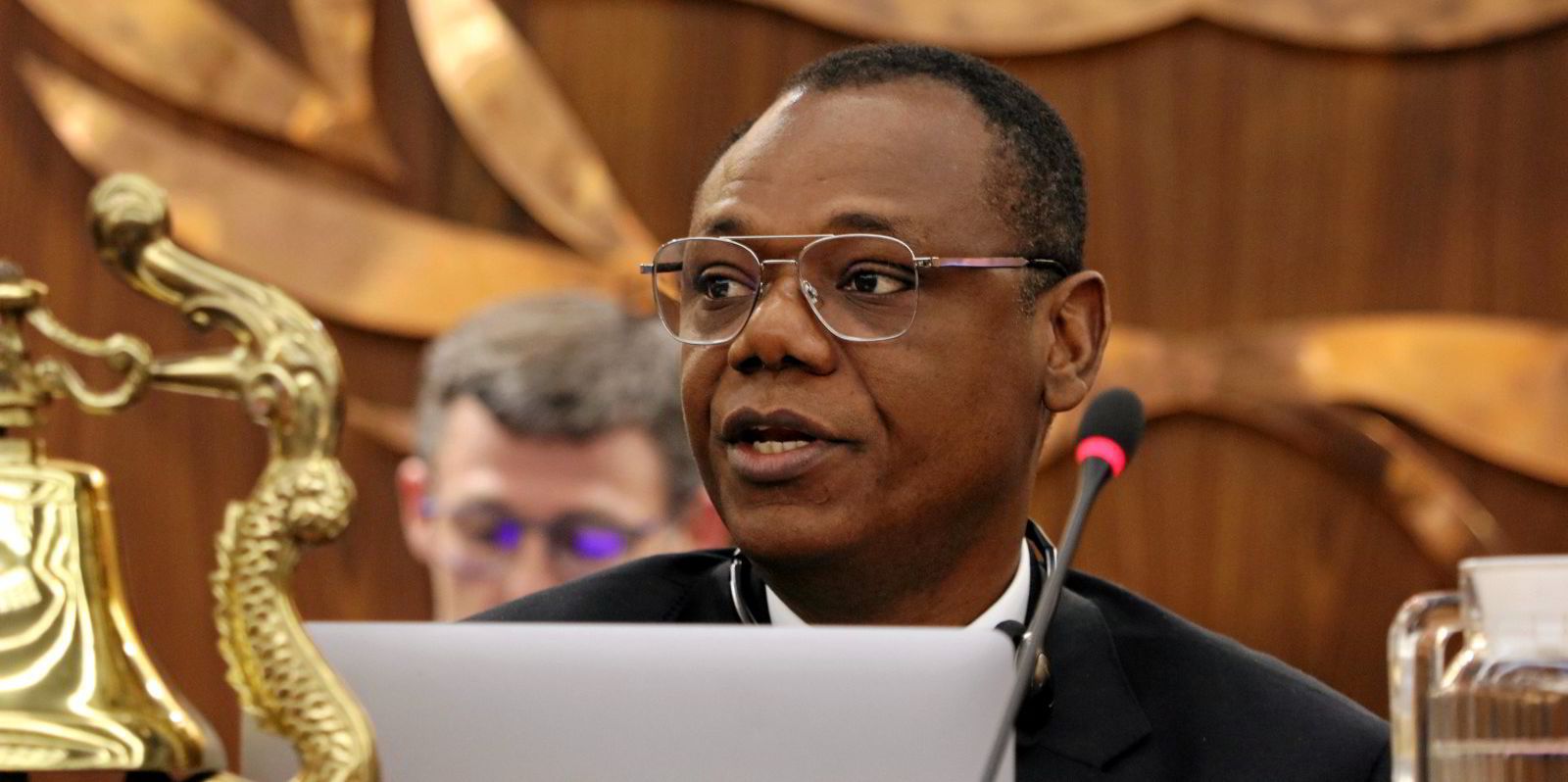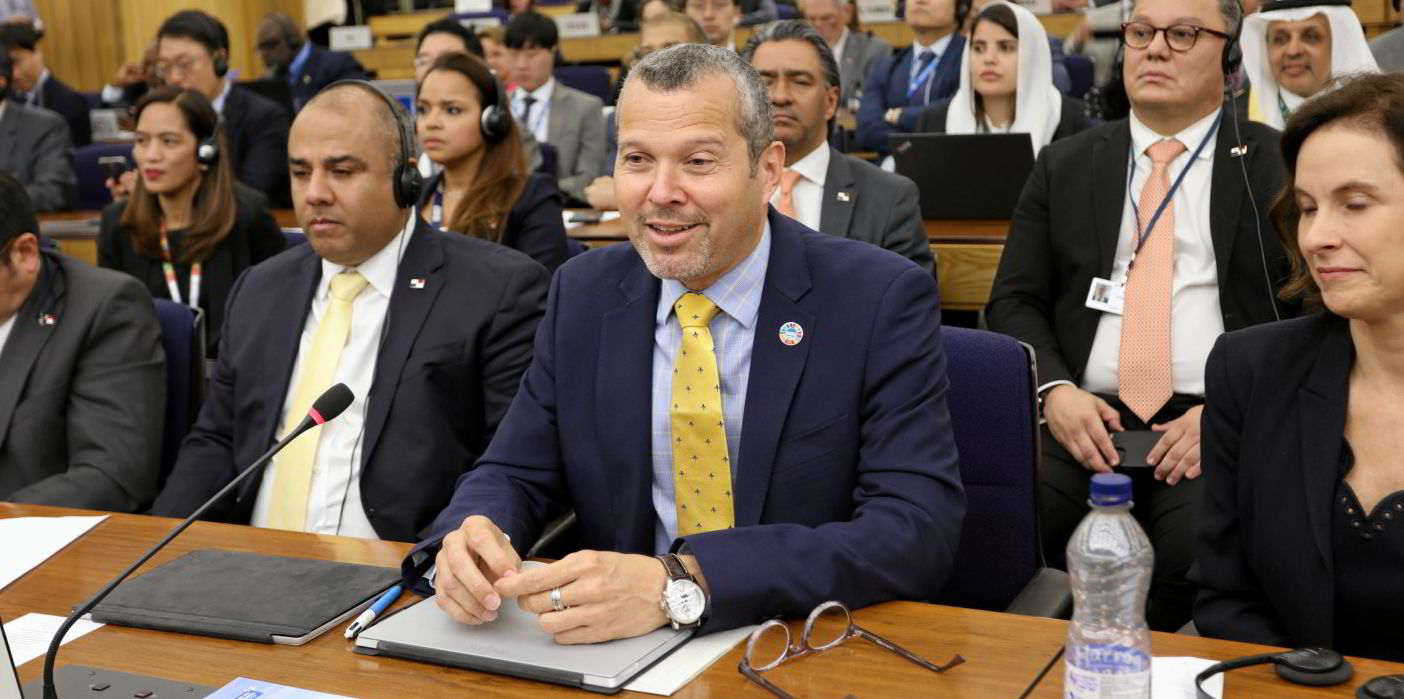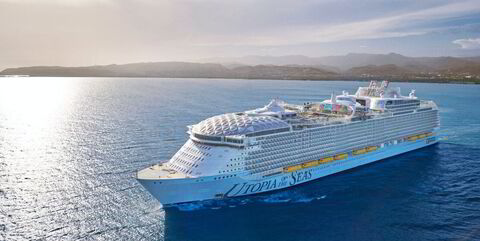Momentum is building behind International Maritime Organization members’ efforts to agree on legally binding measures on global greenhouse gas pricing, according to environmental lobby groups.
This week’s Marine Environment Protection Committee (MEPC) meeting has closed with a clear majority of developed and developing countries supporting going down this road.
Lobby groups and delegates noted a big increase in the number of countries backing the measure, chiefly thanks to Caribbean Island states, many of which spoke for the first time at the IMO, joining their Pacific Island counterparts.
This is the first time the organisation has agreed a draft outline of the legislative framework needed for an economic measure like greenhouse gas pricing and a fuel standard that mandates a growing share of green energy used in ships.
Both of these could be achieved through an amendment to the International Convention for the Prevention of Pollution from Ships (Marpol) treaty.
Dr Tristan Smith, director of UMAS and associate professor at UCL Energy Institute, said the meeting showed there was genuine momentum to put in place effective rules that would drive change.
“Many reactions to the adoption of the IMO’s Revised GHG Strategy in 2023 can be summarised as ‘good to have this, but I’m waiting for the measures in 2025’, and many seem convinced the IMO was unlikely to succeed in implementing measures capable of delivering the strategy’s level of GHG reductions — and speed of change.
“This meeting’s development of a new Marpol chapter, and good progress and momentum towards a timely and robust implementation of robust IMO policy, including an effective GHG levy, seriously questions the wisdom of commercial strategy of ‘wait and see’, or that is dependent on the IMO not delivering what it committed to in 2023.”
The Clean Shipping Coalition welcomed the growing support.
But the green group warned that IMO member states must also maintain focus on other key issues such as the global fuel standard and the improvement of how energy is used in ships via the Carbon Intensity Indicator.
“MEPC 81 reaffirmed to us that countries clearly back a GHG emissions levy rather than weaker alternatives, which sends a strong signal for further developing the policy,” Clean Shipping Coalition president John Maggs said.
He added that IMO member states this week firmly rejected the shipping industry’s attempt to downgrade CII rules.
“This is a good omen not just for the CII’s big moment at MEPC 82 this October, but the whole discussion on measures to deliver the 2023 Greenhouse Gas Strategy emissions reduction goals,” Maggs said.
Two ways forward
The MEPC meeting was the first since the regulator agreed on its historic decarbonisation strategy last year.
TradeWinds has reported three paths forward were under consideration.
A total of 14 middle-income countries supported a fuel standard, which includes “flexibility” or vessel pooling, with a form of trading mechanism.
Eighteen member states backed a fuel standard, without flexibility, working with a price, or levy, for emissions.
This group included the least developed countries and the small island developing states.
The third group, largely the most developed countries, wanted a fuel standard with flexibility in an emissions trading system, and greenhouse gas price, or levy.
The Micronesian Centre for Sustainable Transport (MCST) said on Friday that 34 of the 48 countries that took to the floor are now backing the two options that include a global greenhouse gas levy.
MCST argued that only the levy of $150 per tonne of greenhouse gas emissions proposed by Belize and a group of Pacific nations is “strong and ambitious enough” to meet the 2023 goals.
Clear majority
“This is because it is the sole option on the table providing a strong enough economic incentive to speed up shipping’s clean transition while generating enough revenue as a by-product to ensure this transition is also equitable,” the group said.
Sandra Chiri, shipping manager at Ocean Conservancy, believes the IMO is on the edge of adopting the world’s first-ever global emissions price.
“The March talks at the IMO gave us hope that a clear majority of countries — the Caribbean, the Pacific, Africa, but also the EU and Canada — understand the huge opportunity of pricing shipping emissions for the industry’s clean transition and for making sure this transition benefits all developing countries,” she added.
“It’s regrettable that a small but persistent minority strives to water down this vital climate measure, with a proposal of their own that we know is not ambitious enough,” Chiri said.
Anais Rios, shipping policy officer of Seas At Risk, called the $150 per tonne proposal “the most mature and ambitious proposal on the table”.
“We urge governments to work constructively over the summer ensuring it prioritises equity and fosters a just transition for all involved,” she said.





